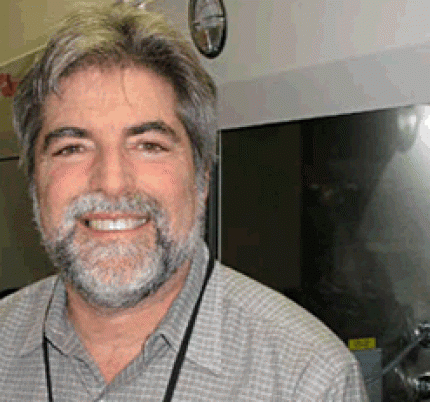
Jeffrey Bluestone, M.S., Ph.D., is the Director of the University of California, San Francisco Diabetes Center and the Immune Tolerance Network and is AW and Mary Clausen Distinguished Professor of Medicine, Pathology, Microbiology and Immunology.
Dr. Bluestone received his undergraduate degree in biology from Rutgers University and a doctorate in immunology from Cornell University. From there he held positions at the National Institute of Health (NIH) and served as the Director of the Ben May Institute for Cancer Research.
His research over the past 25 years has focused on understanding the basic processes that control T-cell activation and immune tolerance in autoimmune diabetes and islet transplantation. Specifically, Dr. Bluestone's work has centered on understanding and altering the positive signals delivered by the autoantigen-specific T-cells and secondary, so-called co-stimulatory, signals, or engaging the negative regulatory events that control T-cell activation. He has developed soluble receptor antagonists, monoclonal antibodies and animals deficient in individual members of these pathways to define their individual roles in transplant rejection and autoimmunity. Finally, he studies a specialized subset of T-cells termed “regulatory T-cells” (Treg) that control fundamental aspect of immune homeostasis.
The insights gained from these studies help in the development of a new generation of tolerogenic drugs that will "turn off" selected parts of the immune system, leaving the disease-fighting capabilities intact. One specific example has his development, in collaboration with Dr. Kevan Herold, of a novel drug termed anti-CD3 for use in humans in the treatment of autoimmune type 1 diabetes. We have shown that this drug, a monoclonal antibody, can induce T-cells into a state of unresponsiveness that leads to long term T-cell tolerance to pancreatic self-proteins. In human studies, Dr. Bluestone has spearheaded clinical trials with the drug, called teplizumab, in multiple clinical settings including new-onset type 1 diabetes, psoriatic arthritis, and islet and kidney transplantation. In addition, he has created comprehensive research and clinical programs aimed at producing rapid clinical advances in the use of Tregs to block and reverse immunologic diseases.
In addition to his fundamental research efforts, Dr. Bluestone has established the UCSF/JDRF Center for Islet Transplantation, a comprehensive research and clinical program aimed at producing rapid clinical advances in islet transplantation. The center combines cutting-edge programs in both immunobiology and transplant biology with established clinical expertise in islet transplantation and monitoring technology. He works closely with Dr. Hebrok and other members of the stem cell community to marry cutting-edge islet cell-specific stem cell biology with novel immunotherapies as a treatment for type 1 diabetes.
Finally, Dr. Bluestone directs the Immune Tolerance Network, a program created in 1999 to accelerate the clinical development of immune tolerance therapies. The ITN is a group of basic science and clinical researchers studying ways to induce immune system tolerance in immune diseases including: allergy and asthma, organ transplantation, and autoimmune diseases. Currently, the ITN is supporting over 20 clinical trials to test tolerogenic therapies in organ transplantation, autoimmune diseases and allergy & asthma. It is a key goal of the ITN to further define the mechanisms of immune tolerance in the human clinical setting.
Dr. Bluestone is a past recipient of the JDRF Gerold & Kayla Grodsky Distinguished Basic Scientist Award in 2004. In 2005, he was the recipient of the JDRF Mary Tyler Moore & Robert Levine Excellence in Clinical Research Award. He was elected to the American Academy of Arts and Sciences in 2006, and in 2008 Dr. Bluestone received the Juvenile Diabetes Research Foundation Scholar Award.
“It is a privilege and honor to be part of the Brehm coalition, which is among the most productive and cooperative scientific coalition that I have ever been part of. Many fruitful cooperations have already emerged from this and Bill Brehm’s seed funding has enabled many of us to rapidly embark on scientific journeys that would otherwise be considered too risky and early stage to be funded! I believe that our coalition will make a major impact on accelerating the path towards a cure of type 1 diabetes.”
